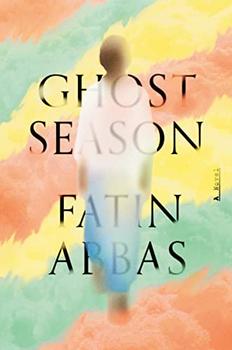Summary | Excerpt | Reviews | Beyond the Book | Read-Alikes | Genres & Themes | Author Bio

A Novel
by Fatin AbbasThis article relates to Ghost Season
 Ghost Season by Fatin Abbas takes place in an NGO (non-government organization) facility in Saraaya, a town close to the border between northern and southern Sudan, during the Second Sudanese Civil War (1983-2005), which was essentially a continuation of the First Sudanese Civil War (1955-1972). While there were multiple complex factors behind both wars, the conflicts that sparked them had roots in historical clashes between people living in rural areas and governmental powers, as well as British colonization in the region.
Ghost Season by Fatin Abbas takes place in an NGO (non-government organization) facility in Saraaya, a town close to the border between northern and southern Sudan, during the Second Sudanese Civil War (1983-2005), which was essentially a continuation of the First Sudanese Civil War (1955-1972). While there were multiple complex factors behind both wars, the conflicts that sparked them had roots in historical clashes between people living in rural areas and governmental powers, as well as British colonization in the region.
In the 1890s, the British invaded the area that is now Sudan and South Sudan, and split it into northern and southern provinces to be governed separately. The northern part was considered to be similar to Arab countries, such as Egypt, while the southern part was considered to have more in common with East African colonies, such as Uganda. When the two areas were integrated in 1946, a disproportionate amount of power was given to the predominantly Muslim north, creating resentment and unrest in the mostly Christian and Indigenous south, with southern leaders calling for an independent state and freedom from Muslim governance. The First Sudanese Civil War, fought between the guerilla Southern Sudan Liberation Movement (SSLM) and the central government in the capital city of Khartoum, began a year before the end of colonization and went on for 17 years. The conflict ended with the Addis Ababa Agreement on March 27, 1972, which promised certain degrees of autonomy for the southern region of the country.
During the following years, civil conflict rose again, partly due to multiple violations of the agreement by the government, including attempts to take control of the natural resources of southern Sudan after the discovery of oil there in 1978, as well as an imposition of Sharia Law across the nation in 1983. The SPLA (Sudan People's Liberation Army), led by John Garang, was formed in response to these violations. The second civil war was fought between the government and the SPLA. This war was a particularly long and bloody conflict, lasting for 22 years. It was one of the longest civil wars on record and had one of the highest numbers of civilian deaths (approximately two million) among all wars taking place since World War II. It spanned coups, failed peace negotiations and rampant human rights abuses. The SPLA and the government finally reached an agreement through peace talks in 2002, and in 2005 officially signed the Comprehensive Peace Agreement, which called for the creation of the independent state of South Sudan in 2011.
Fatin Abbas's own family moved to the United States to flee political persecution during the second civil war, after a 1989 coup brought about by military autocrat Omar Al-Bashir; her father was imprisoned for opposing Bashir's regime. In an interview with the Chicago Review of Books, Abbas addresses how civil conflict has continued within South Sudan since its independence, commenting, "in some sense, all of this fighting for a new nation—it was like the nation was already dead upon birth, somehow, in the same way that Sudan as a nation was already dead upon birth from colonialism, because it was inheriting all of these structures of inequality and ethnic oppression."
Abbas also speaks of the challenges of portraying the ethnic divisions present in Ghost Season while accounting for anti-Muslim sentiment, explaining, "there's a certain Western narrative about Sudan, which re-emerged during the war in Darfur, within the context of the War on Terror, right, like the Bad Muslims, African Victim…you have to be careful when you're writing a book in English that's going to be published in the US when there are certainly discourses around Islam and Muslims and Arabs."
Generals of South Sudan celebrate the country's independence in 2011. Photo by Steve Evans (CC BY 2.0)
Filed under People, Eras & Events
![]() This article relates to Ghost Season.
It first ran in the February 15, 2023
issue of BookBrowse Recommends.
This article relates to Ghost Season.
It first ran in the February 15, 2023
issue of BookBrowse Recommends.




Life is the garment we continually alter, but which never seems to fit.
Click Here to find out who said this, as well as discovering other famous literary quotes!
Your guide toexceptional books
BookBrowse seeks out and recommends the best in contemporary fiction and nonfiction—books that not only engage and entertain but also deepen our understanding of ourselves and the world around us.